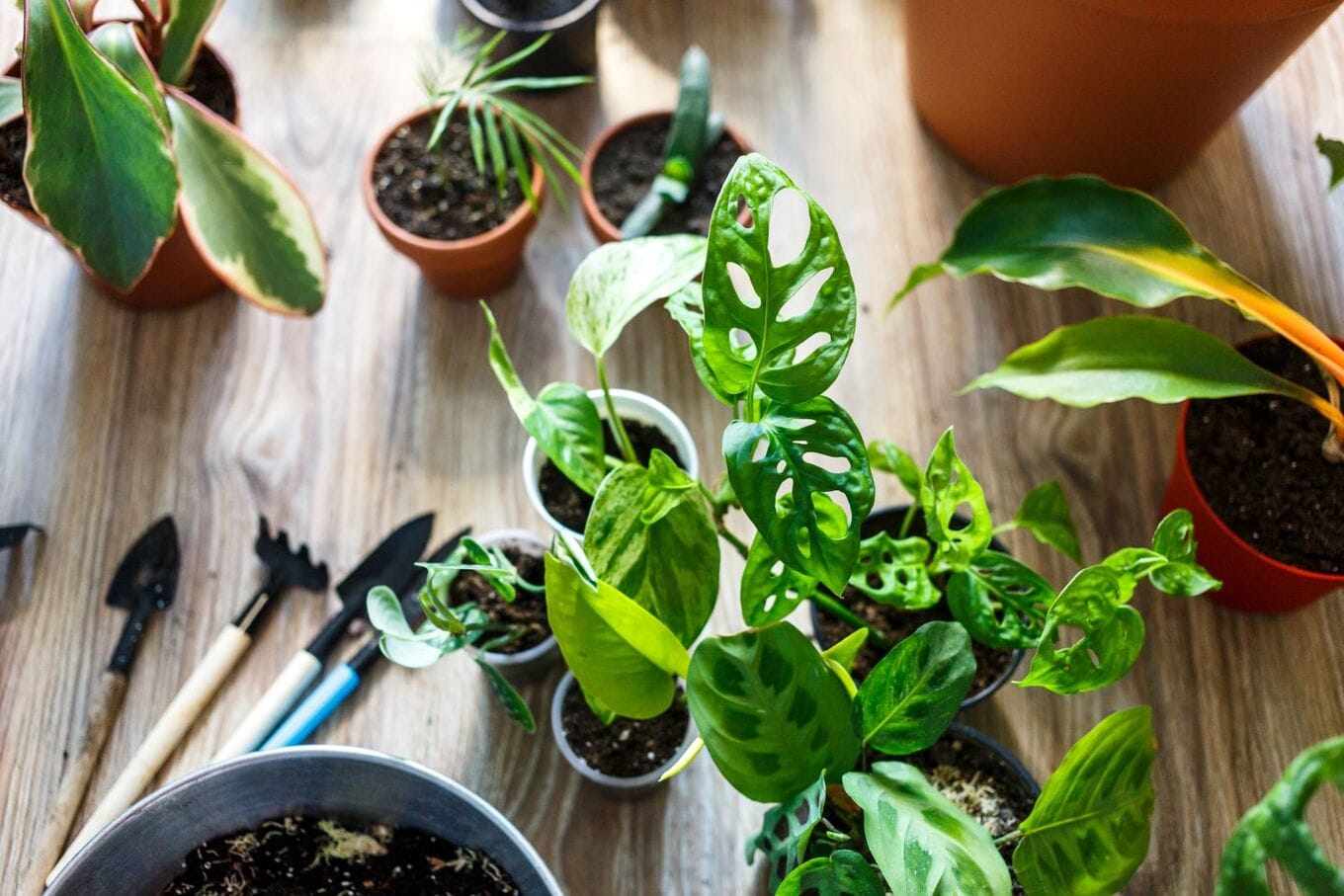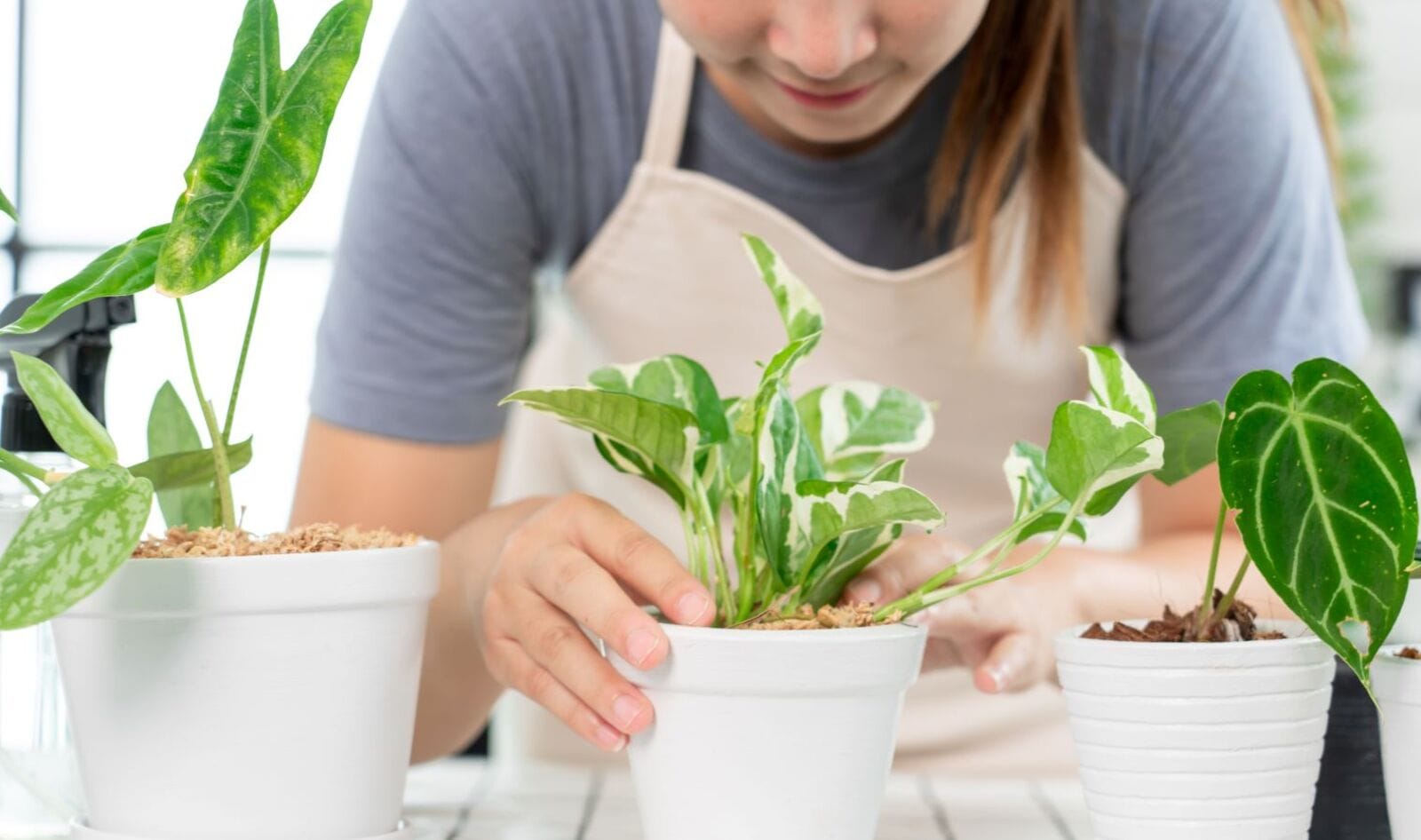Countless studies have shown the health benefits of eating plants, but now new research shows that growing indoor plants comes with health benefits, too. According to research from the University of Technology, Sydney (UTS), plants have the potential to combat hazardous gasoline fumes lingering in the air. The study, conducted in partnership with Ambius, an Australian company specializing in creating healthier environments, has showcased the formidable air-cleansing capabilities of indoor plants.
The study underscores the capacity of indoor plants to eliminate an astounding 98 percent of the organic compound alkane and an impressive 86 percent of the cancer-causing benzene compound.
 Adobe
Adobe
Published as a non-peer-reviewed study, the collaboration between UTS and Ambius brings forth an innovative approach to addressing indoor air pollution. Previous studies on indoor plants have shown they can remove a broad range of indoor air contaminants, but this is the first study into the ability of plants to clean up gas vapors, which are one of the largest sources of toxic compounds in buildings worldwide.
Indoor plants remove toxins from the air
The study used the Ambius Small Live Green Wall, a vertical plant wall system tailored for indoor spaces. This system can house a diverse mix of plant species and has demonstrated its proficiency in mitigating the harmful effects of gasoline vapors— a significant contributor to indoor toxic compounds globally.
In a controlled environment, the study subjected the Ambius system to gas vapor within sealed chambers. The results were nothing short of remarkable, indicating the system’s unmatched efficacy in purging indoor air of dangerous pollutants.
“We also found that the more concentrated the toxins in the air, the faster and more effective the plants became at removing the toxins, showing that plants adapt to the conditions they’re growing in,” Associate Professor and lead researcher Fraser Torpy said in a statement.
By targeting gas fumes, which have long been one of the most pervasive sources of indoor air contamination, the Ambius Small Live Green Wall is capable of supporting cleaner and safer living spaces. Researchers affirm that the system’s implementation can markedly enhance the well-being of occupants.
How poor air quality affects health
Poor air quality is responsible for 6.7 million premature deaths globally, according to the World Health Organization. Most people spend 90 percent of their time indoors at home, school, or the workplace, so adopting new strategies to improve air quality is critical.
 Adobe
Adobe
Additionally, offices and residential apartment buildings often connect directly to underground parking lots, either by doors or elevators, making it difficult to avoid harmful gas-related compounds seeping into work and residential areas. Many buildings are also exposed to gas fumes from nearby roads and highways.
Ambius General Manager Johan Hodgson said the research presented new evidence into the critical role played by indoor plants and green walls in cleaning the air we breathe quickly and sustainably.
“We know that indoor air quality is often significantly more polluted than outdoor air, which in turn impacts mental and physical health,” Hodgson said in a statement.
“But the great news is this study has shown that something as simple as having plants indoors can make a huge difference.”
The inhalation of gas fumes has been associated with a range of adverse effects, including persistent headaches, lung irritations, and nauseous sensations. Tragically, prolonged exposure to these fumes has been linked to the onset of asthma, escalated cancer risks, and a host of chronic diseases that collectively contribute to diminished life expectancy.
Eating plants reduces cancer risk
While this discovery offers a ray of optimism, promising safer indoor environments and prolonged well-being for everyone who spends time indoors, numerous previous studies have noted that consuming plants also reduces the risk of certain cancers. These include prostate cancer, breast cancer, colon cancer, and other digestive cancers.
In fact, one study published earlier this year revealed that a plant-based diet that includes plenty of fresh fruits and vegetables could reduce both the progression of prostate cancer by 52 percent and the likelihood that it will return by 53 percent.
 Adobe
Adobe
“This study indicates that plant-based dietary patterns are associated with lower risk of [prostate cancer (PC)] progression and recurrence, particularly among older men and those who reported a higher intensity walking pace,” the study notes.
The conclusion is similar to that of previous studies that suggest a beneficial role of specific plant-based foods on prostate cancer, such as tomatoes, and the potentially harmful role of meat, dairy, and other animal products.
Last year, a study published in scientific, peer-reviewed publication Journal of Urology found that greater consumption of plant-based foods lowers the risk of prostate cancer for men under 65.
For the latest vegan news, read:
JUMP TO ... Latest News | Recipes | Guides | Health | Subscribe









